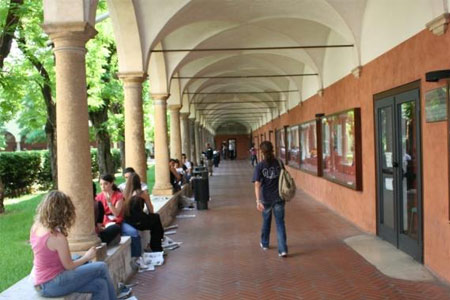- Didattica

Semestre filtro
Corsi di laurea
Corsi di laurea magistrale
POST LAUREA
- Facoltà
- Segreterie e sedi

Segreterie
Strutture
- Persone
- MY UNIVR
-
| L'insegnamento è organizzato come segue: | |||
| Attività | Crediti | Periodo | Docenti |
| Malattie del sangue 4 - Krampera | 0,84 | non ancora assegnato |
Mauro Krampera
|
| Malattie del sangue 4 - Tecchio | 0,66 | non ancora assegnato |
Cristina Tecchio
|
| Malattie del sangue 4 - Bonifacio | 0,84 | non ancora assegnato |
Massimiliano Bonifacio
|
| Malattie del sangue 4 - Visco | 0,66 | non ancora assegnato |
Carlo Visco
|
| Analisi studi clinici ematologici sperimentali e linee guida | 0,5 | non ancora assegnato |
Ancora Da Definire
|
| Immunoematologia e medicina trasfusionale | 0,5 | non ancora assegnato |
Sabrina Genesini
|
| Trapianto allogenico di cellule staminali - Benedetti | 1 | non ancora assegnato |
Fabio Benedetti
|
| Patologia dell'emostasi - Tosetto | 1 | non ancora assegnato |
Alberto Tosetto
|
I linfomi non-Hodgkin sono un gruppo di patologie neoplastiche determinate da una proliferazione monoclonale di cellule linfoidi nei vari siti linforeticolari, inclusi i linfonodi, il midollo osseo, la milza, il fegato e il tratto gastrointestinale. Tra i sintomi più comuni all'esordio vi è di solito la presenza di linfoadenopatie periferiche. Tuttavia, in alcuni pazienti i linfomi non-Hodgkin si presentano senza adenopatie, ma con linfociti trasformati in circolo. È probabile che la malattia sia disseminata al momento dell'esordio e la diagnosi si basa di solito sulla biopsia del linfonodo o del midollo osseo o su entrambe. Le strategie di gestione possono comprendere osservazione e attesa, chemioterapia, farmaci mirati (p. es., inibitori della chinasi) e immunoterapie (p. es., anticorpi monoclonali, cellule T del recettore dell'antigene chimerico); occasionalmente, viene aggiunta la radioterapia. Con poche eccezioni, il trapianto di cellule staminali è di solito riservato ai pazienti con linfomi aggressivi a seguito di una remissione incompleta o di una recidiva.
Orale, con verifica dell'apprendimento basata su domande e risposte e commenti al singolo argomento.
© 2002 - 2025
Università degli studi di Verona
Via dell'Artigliere 8, 37129 Verona |
P. I.V.A. 01541040232 |
C. FISCALE 93009870234